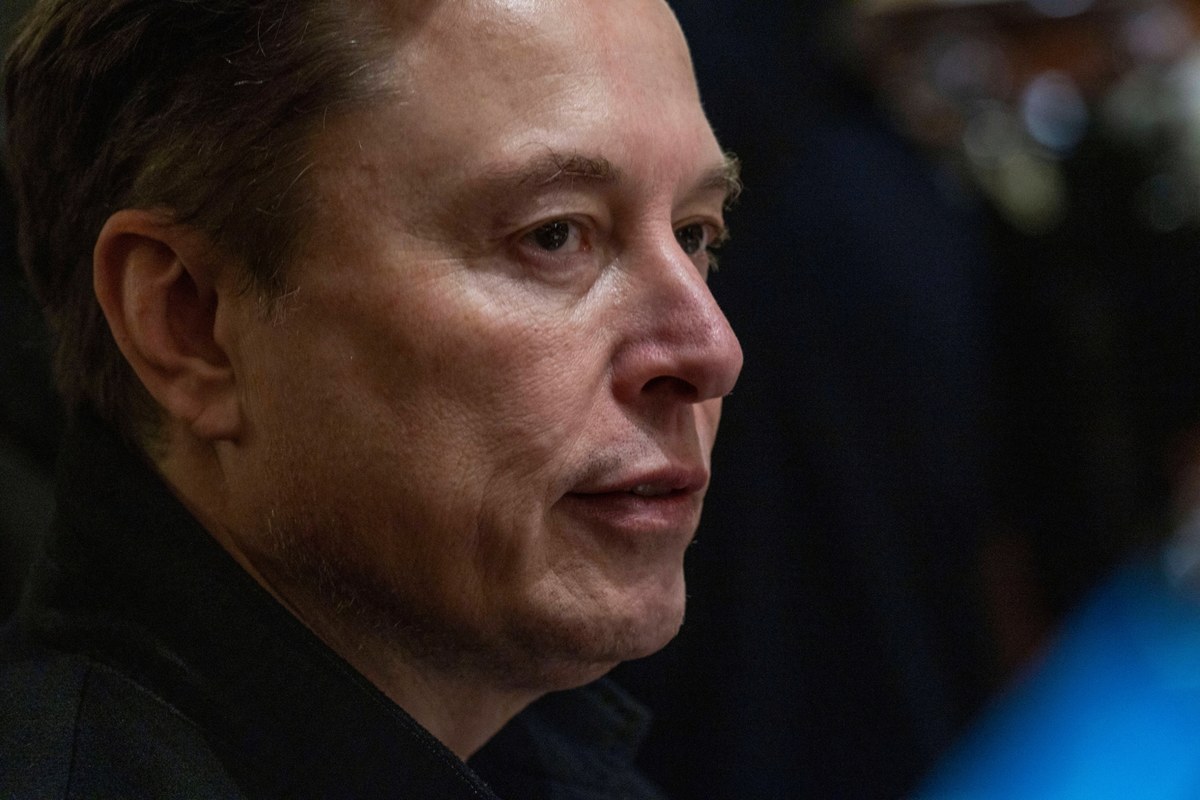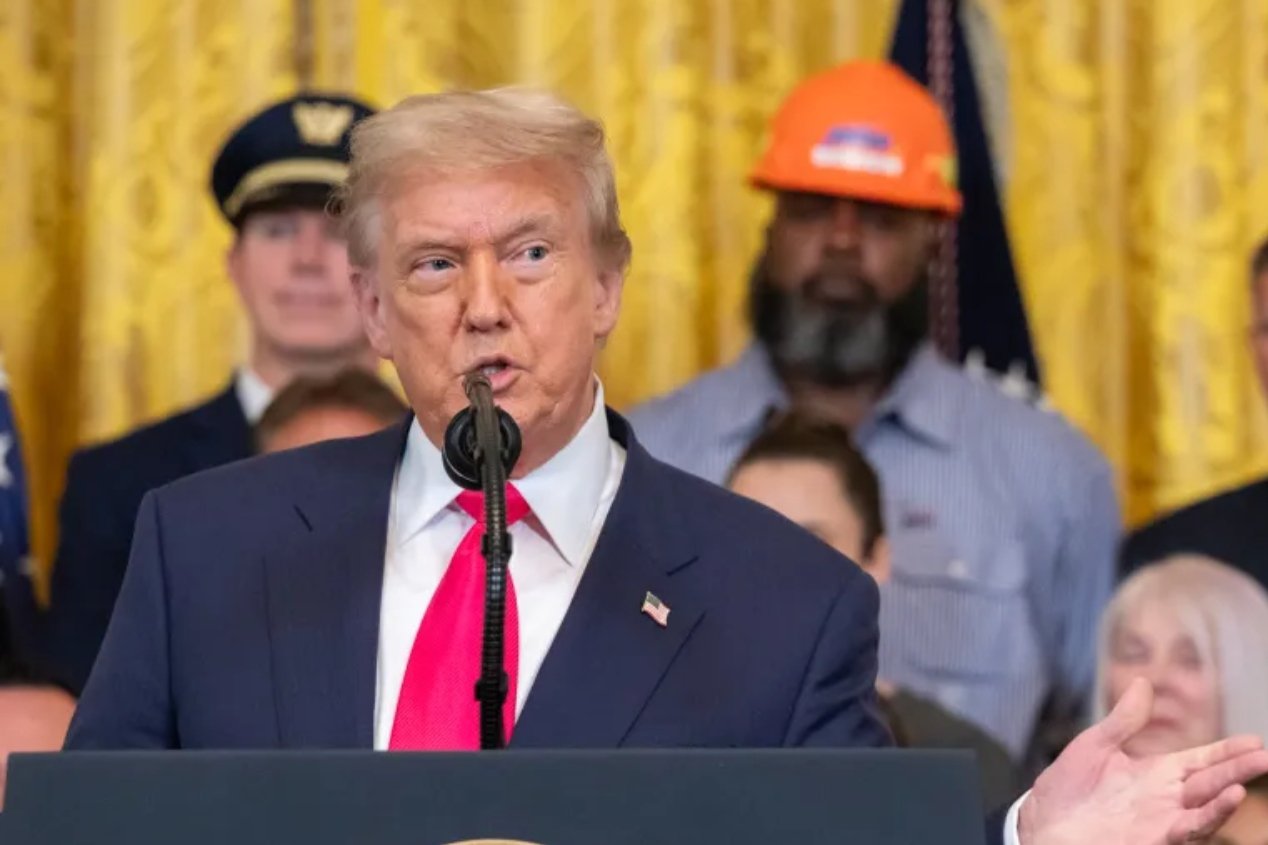
Кто программирует ИИ, господин президент?
Автор Морин Стил через American Greatness.
Новый законодательный центр президента Трампа — «Один большой красивый законопроект» — имеет многообещающее название и некоторые убедительные цели: сократить раздувание правительства, оптимизировать агентства и модернизировать операции с использованием передовых технологий.
Но есть проблема. Большой.

Никто не скажет нам, кто программирует ИИ.
Этот законопроект включает 10-летний мораторий на любое государство или местное правительство, регулирующее искусственный интеллект. По данным The Washington Post и AP, более 60 существующих законов на государственном уровне будут отменены, если это положение пройдет. Все регулирующие органы, включая системы, которые будут использоваться в правоохранительных органах, здравоохранении, обороне и финансах, будут централизованы в федеральном правительстве в течение десятилетия.
Еще хуже? Законопроект уполномочивает Министерство торговли внедрять «коммерческий ИИ» практически во всех федеральных агентствах — от Налогового управления США до Национальной безопасности.Об этом сообщает Indian Express и The Verge.
И все же никто в Белом доме или Конгрессе не раскрыл, кто пишет код ИИ, на каких наборах данных он обучен, может ли он быть независимо проверен или связан Конституцией США.
Это не просто вопрос прозрачности. Это конституционный кризис в процессе становления.
Чтобы было ясно, инстинкты президента Трампа здесь могут быть здравыми. Мы давно нуждались в сокращении федерального левиафана и замене неконституционных бюрократий системами, которые служат людям, а не особым интересам.
Но благие намерения не защитят нас от невидимых программистов, алгоритмов черного ящика и неподотчетной автоматизации.
Этот законопроект предписывает интеграцию ИИ в правительстве «для повышения эффективности и безопасности». Но эффективность — это не свобода. Безопасность — это не суверенитет. И ни одному ИИ, каким бы «умным» он ни был, нельзя позволять переписывать, игнорировать или переосмысливать конституционные права.
Согласно Business Insider, заявленная цель моратория на ИИ состоит в том, чтобы «содействовать инновациям» и избегать «фрагментированного регуляторного ландшафта». В действительности это лишает государства их полномочий защищать своих граждан от подделок, алгоритмических предубеждений, цифровой цензуры и массового наблюдения.
Это не управление. Это аутсорсинговая тирания, скрытая под видом модернизации.
Поэтому давайте зададим вопрос о том, что происходит, когда ИИ становится оружием. Если бы внедряемые системы были открытыми, прозрачными, полностью построенными на конституционной юриспруденции и проверяемыми общественностью, у нас был бы совсем другой разговор.
Вместо этого мы сталкиваемся с будущим, когда алгоритм может определить, имеете ли вы право на услуги, система машинного обучения может пометить вас как «угрозу» на основе ваших сообщений в социальных сетях, а модель черного ящика может отказать вам в кредите, отклонить ваш юридический вызов или заморозить ваш банковский счет.
Вам никогда не скажут, почему.
Вы никогда не встретите человека, который принял решение, потому что его не будет.
И вы не сможете подать в суд.
Не будем забывать: ИИ так же надежен, как и данные и идеология, стоящая за ним. Кто пишет правила? Google? Палантир? Подрядчик из Пентагона? Комитет офицеров DEI? Кто-нибудь из них придерживается Конституции?
Законопроект не обеспечивает ясности и не имеет обязательных ограничений.
Многие американцы заметили, что Трамп, будучи дальновидным и смелым, часто окружает себя персоналом, который не разделяет его убеждения.
Посмотрите не дальше, чем Сьюзи Уайлс — давний инсайдер и лоббист из Вашингтона, которая выступает в качестве привратника бывшего президента. Она известна тем, что блокирует консервативных конституционалистов от предоставления жизненно важной информации Трампу. Обеспокоенность здесь очевидна: если Трампа не информируют должным образом, он может поддержать законодательство, которое полностью противоречит тем ценностям, которые он пытается защитить.
Он был введен в заблуждение раньше, и этот законопроект может быть худшим примером.
Если ИИ будет развернут в правительстве, то он должен быть открытым исходным кодом, чтобы общественность могла его проверить, привязанным к Конституции, а не к корпоративному кодексу; регулярно проверяться независимыми советами по рассмотрению под руководством гражданских лиц; и подвергаться судебному оспариванию, если он нарушает права.
Все меньшее является предательством американского суверенитета.
Один большой красивый законопроект не является безобидной мерой модернизации. Это потенциальный шлюз к технократическому контролю, где власть правоохранительных органов, налогообложения и надзора передается машинам, которые мы не можем видеть, подвергать сомнению или привлекать к ответственности.
Позвоните своим американским сенаторам. Спрос: снятие моратория на ИИ. Четкие конституционные барьеры и прозрачность, аудит и общественный надзор за всем кодом ИИ, развернутым в федеральных агентствах.
Дайте им знать: Мы не отдаем республику алгоритму.
Это борьба. Если мы проиграем этот бой, то, возможно, не останется никого — ни человека, ни кого-то другого, — кто мог бы бороться с ним.
** **
Мнения, выраженные в данной статье, являются мнениями автора и не обязательно отражают взгляды ZeroHedge.
Тайлер Дерден
Фри, 05/30/2025 - 13:45








![Nielisz: Power Sobótka. największą popularnością cieszyły się koncerty [ZDJĘCIA]](https://static2.kronikatygodnia.pl/data/articles/xga-4x3-nielisz-power-sobotka-najwieksza-popularnoscia-cieszyly-sie-koncerty-zdjecia-1751631617.jpg)



